Filter by
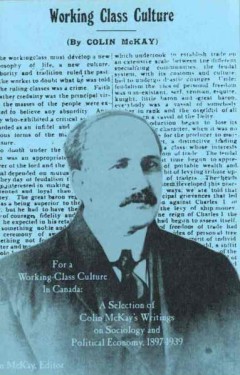
For A Working-Class Culture in Canada A Selection of Colin McKay’s Writing…
This book sets out to present the economic and social writings of Colin McKay, a pioneer Marxian sociologist and economist in Canada (and no relation to the author), and to place McKay in the context of the international socialist tradition. The manuscript takes the form of an extensive biographical essay, five substantive sections that present and examine McKay’s thought both thematically an…
- Edition
- -
- ISBN/ISSN
- 0-9695835-6-7
- Collation
- -
- Series Title
- CCLH Publications
- Call Number
- -
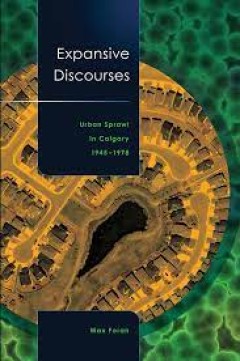
Expansive Discourses Urban Sprawl in Calgary, 1945-1978
A groundbreaking study of urban sprawl in Calgary after the Second World War. The interactions of land developers and the local government influenced how the pattern grew: developers met market demands and optimized profits by building houses as efficiently as possible, while the City had to consider wider planning constraints and infrastructure costs. Foran examines the complexity of their int…
- Edition
- -
- ISBN/ISSN
- 978-1-897425-13-8
- Collation
- -
- Series Title
- The West Unbound: Social and Cultural Studies
- Call Number
- 6 x 9, 284 pages
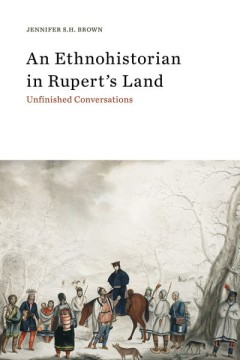
An Ethnohistorian in Rupert’s Land Unfinished Conversations
While diverse in their subject matter, the essays have thematic unity in their focus on the old HBC territory and its peoples from the 1600s to the present. More than an anthology, the chapters of An Ethnohistorian in Rupert’s Land provide examples of Brown’s exceptional skill in the close study of texts, including oral documents, images, artifacts, and other cultural expressions. The volum…
- Edition
- -
- ISBN/ISSN
- 9781771991711.01
- Collation
- -
- Series Title
- -
- Call Number
- 6 x 9, 368 pages
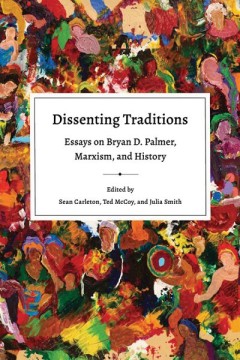
Dissenting Traditions Essays on Bryan D. Palmer, Marxism, and History
Dissenting Traditions gathers Palmer’s contemporaries, students, and sometimes critics to examine and expand on the topics and themes that have defined Palmer’s career, from labour history to Marxism and communist politics. Paying attention to Palmer’s participation in key debates, contributors demonstrate that class analysis, labour history, building institutions, and engaging the public…
- Edition
- -
- ISBN/ISSN
- 9781771993111.01
- Collation
- -
- Series Title
- Working Canadians: Books from the CCLH
- Call Number
- 6 x 9, 376 pages
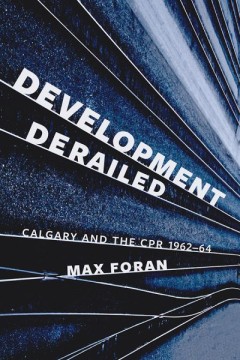
Development Derailed Calgary and the CPR , 1962–64
What, in economic terms, was perceived to be a win-win situation for both parties fell prey to a conflict between corporate rigidity and an unorganized, ill-informed, and over-enthusiastic civic administration and city council. Drawing on the private records of Rod Sykes, the CPR’s onsite negotiator and later Calgary’s mayor, Foran unravels the fascinating story of how politics ultimately u…
- Edition
- -
- ISBN/ISSN
- 978-1-927536-08-1
- Collation
- -
- Series Title
- -
- Call Number
- 272 pages
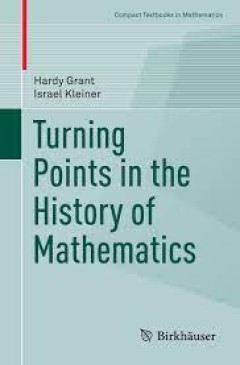
Turning Points in the History of Mathematics
This book explores some of the major turning points in the history of mathematics, ranging from ancient Greece to the present, demonstrating the drama that has often been a part of its evolution. Studying these breakthroughs, transitions, and revolutions, their stumbling-blocks and their triumphs, can help illuminate the importance of the history of mathematics for its teaching, learning, and …
- Edition
- -
- ISBN/ISSN
- 978-1-4939-3264-1
- Collation
- IX, 109
- Series Title
- -
- Call Number
- -
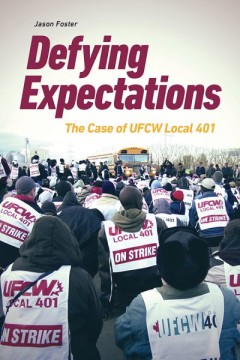
Defying Expectations The Case of UFCW Local 401
In this study of UFCW 401, Foster investigates a union that has had remarkable success organizing a group of workers that North American unions often struggle to reach: immigrants, women, and youth. By examining not only the actions and behaviour of the local’s leadership and its members but also the narrative that accompanied the renewal of the union, Foster shows that both were essential co…
- Edition
- -
- ISBN/ISSN
- 9781771991995.01
- Collation
- -
- Series Title
- Working Canadians: Books from the CCLH
- Call Number
- -
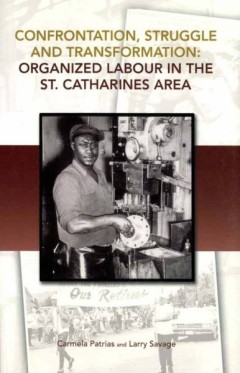
Confrontation, Struggle and Transformation Organized Labour in the St. Catha…
The study explores the labour movement’s fight to survive and thrive in the Niagara region. Thanks to extensive quotations from interviews, archival sources and local newspapers, the story unfolds, in part, through the voices of the people themselves: workers who fought for unions, community members who supported them and employers who opposed them.
- Edition
- -
- ISBN/ISSN
- 9781894000086
- Collation
- -
- Series Title
- CCLH Publications
- Call Number
- -
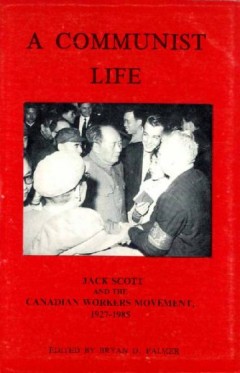
A Communist Life Jack Scott and the Canadian Workers Movement, 1927-1985
An interesting collection of some of the new work being done in Canada by historians and sociologists, Class, Gender, and Region reflects Charles Tilly’s suggestion that “there should be no disciplinary division of labour: simply both doing social history.”
- Edition
- -
- ISBN/ISSN
- 0-9692060-4-6
- Collation
- -
- Series Title
- CCLH Publications
- Call Number
- -
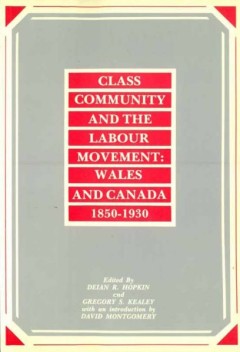
Class, Community and the Labour Movement Wales and Canada, 1850-1930
This collection of essays stems from a joint conference held at the University College of Wales at Aberystwyth by the Committee on Canadian Labour History and the Society for the Study of Welsh Labour History. An Introduction by David Montgomery places the essays in a broader international perspective. Contributors from Wales include John Williams, Christopher Turner, Merfyn Jones, Dot Jones, a…
- Edition
- -
- ISBN/ISSN
- N 0 9692060 6 2
- Collation
- -
- Series Title
- CCLH Publications
- Call Number
- -
 Computer Science, Information & General Works
Computer Science, Information & General Works  Philosophy & Psychology
Philosophy & Psychology  Religion
Religion  Social Sciences
Social Sciences  Language
Language  Pure Science
Pure Science  Applied Sciences
Applied Sciences  Art & Recreation
Art & Recreation  Literature
Literature  History & Geography
History & Geography